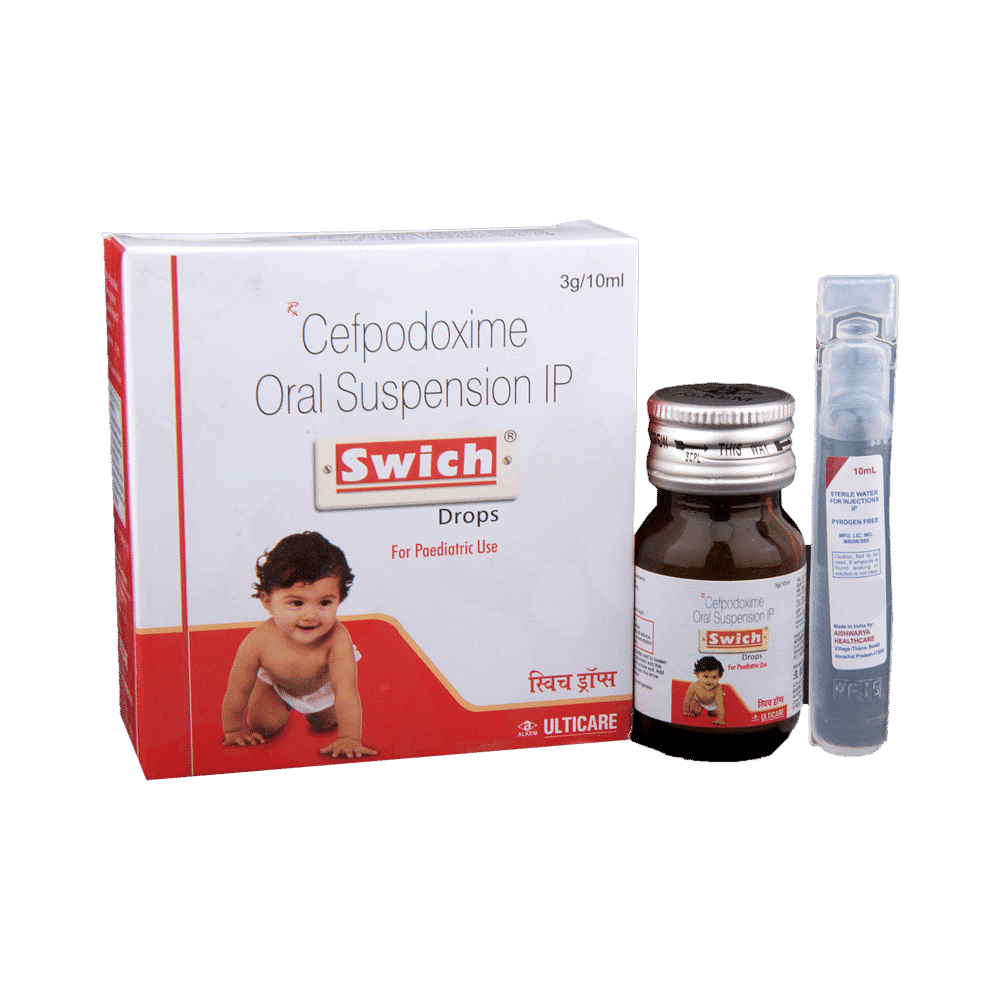
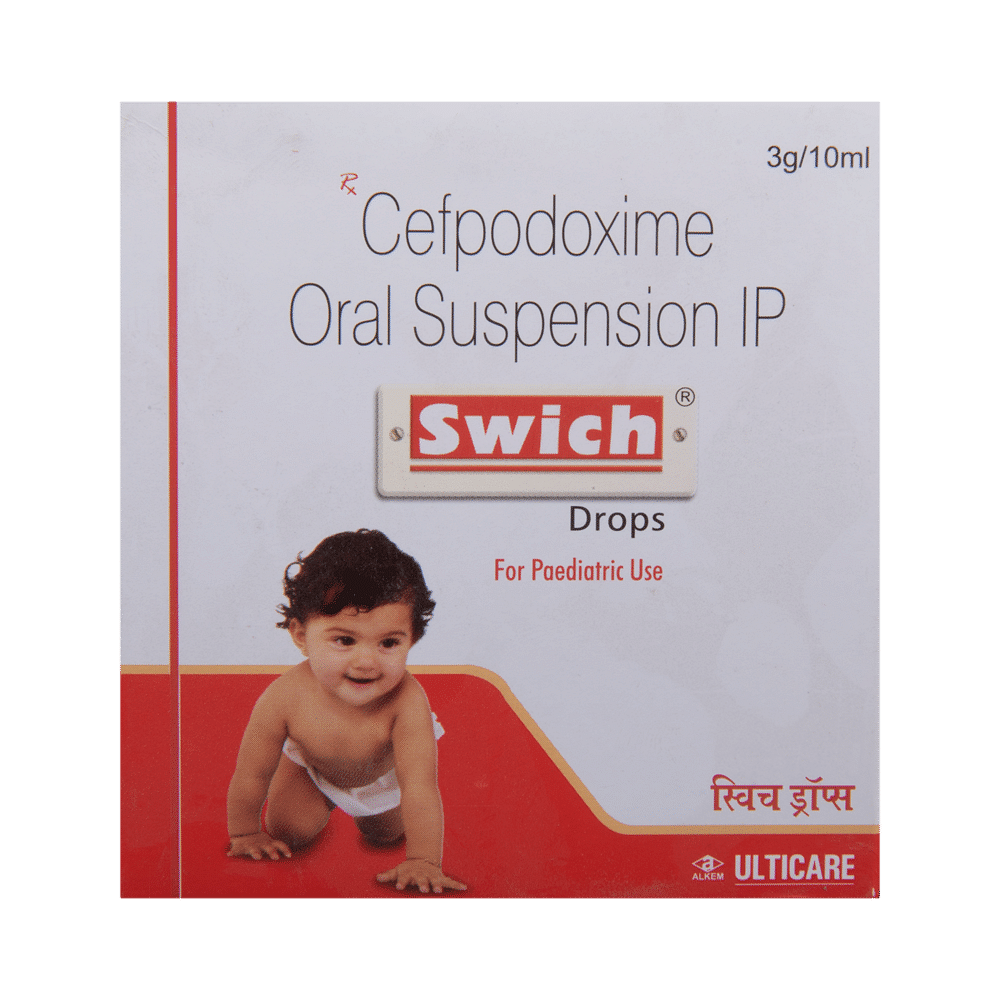
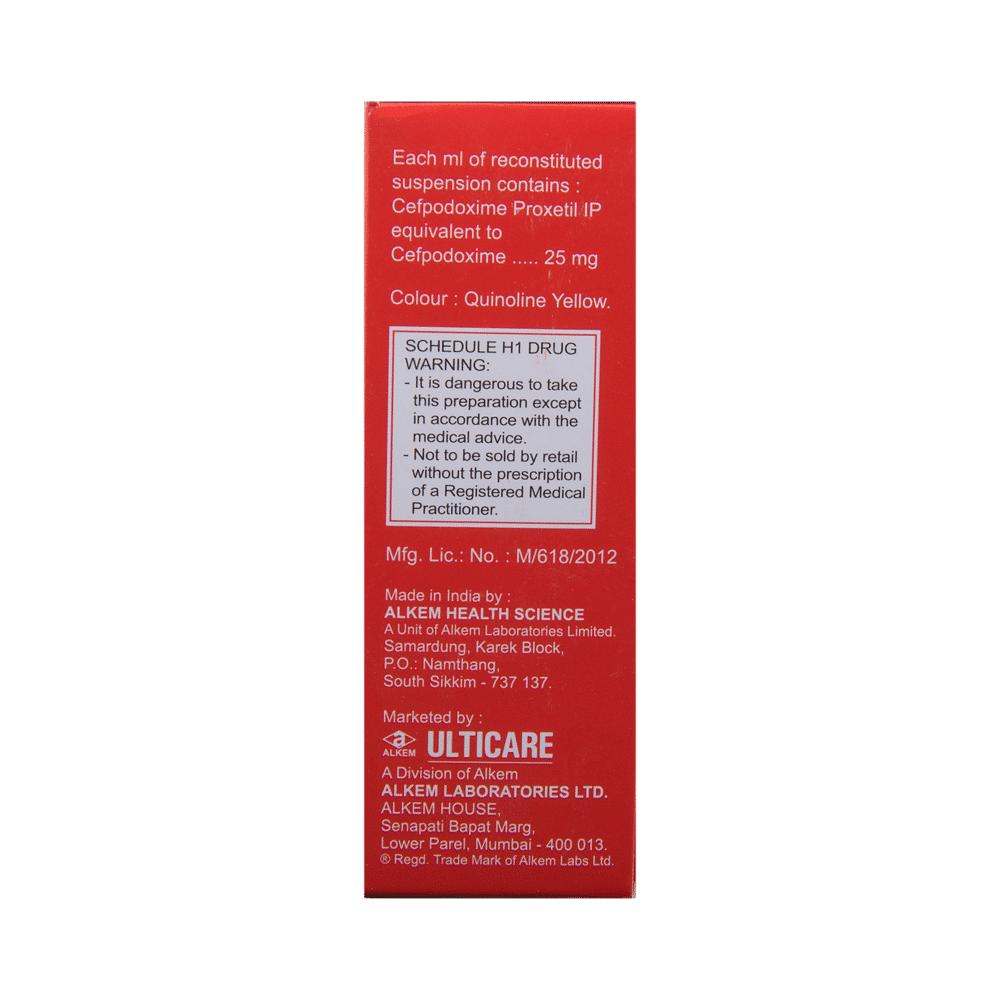
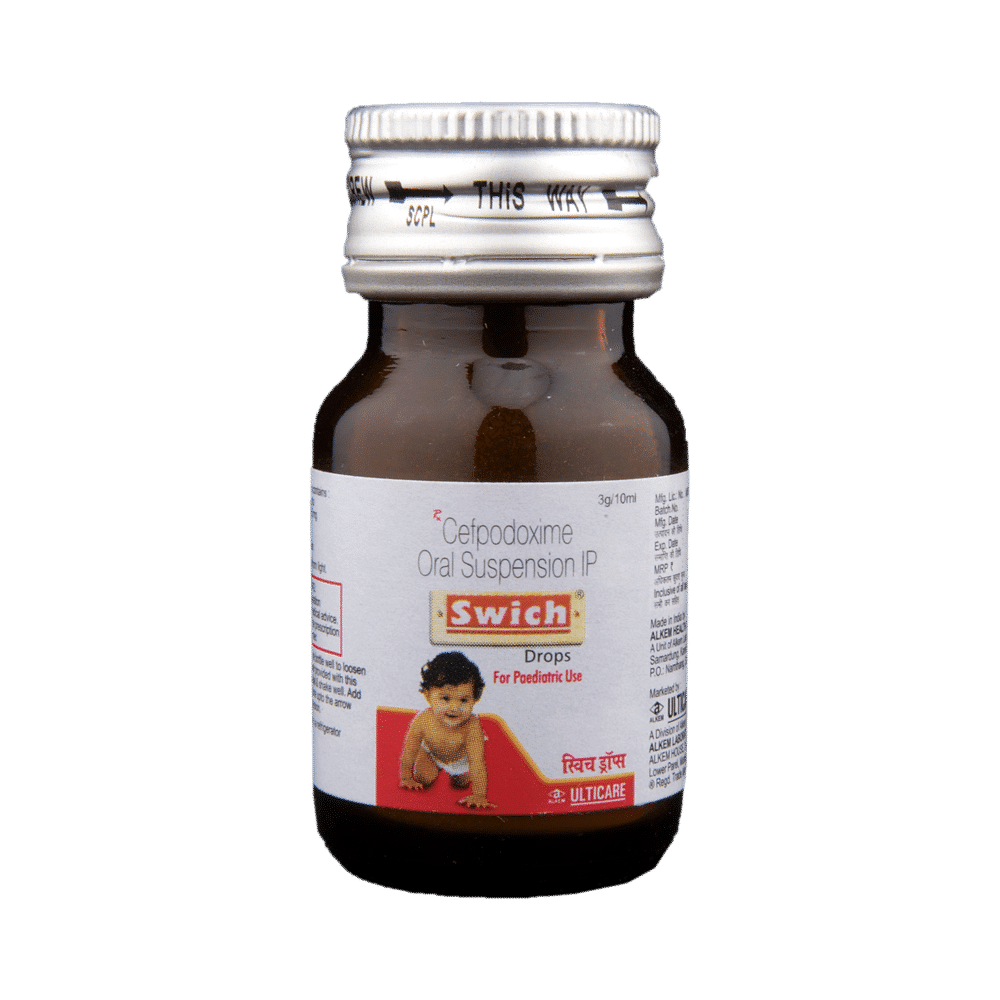
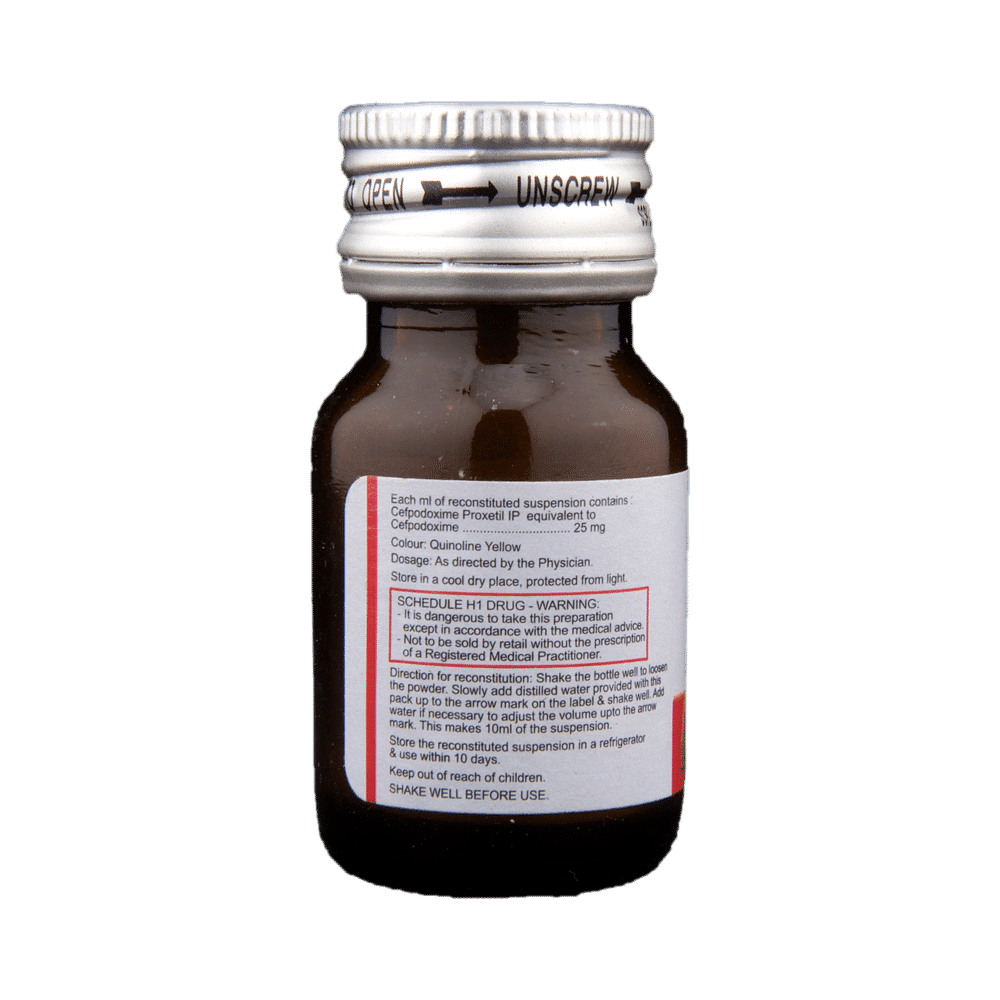
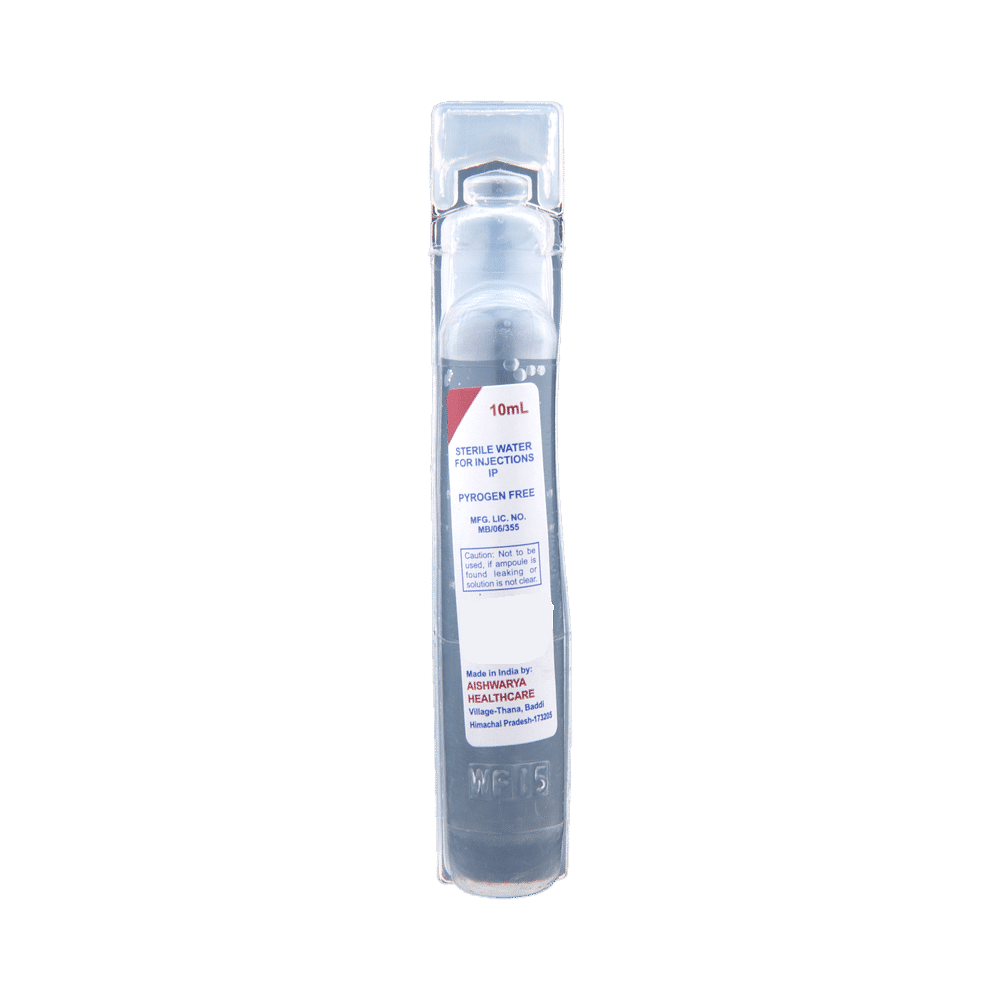
Swich Drops
Manufacturer
Alkem Laboratories Ltd
Salt Composition
Cefpodoxime Proxetil (25mg)
Key Information
Short Description
Swich Drops is an antibiotic medicine used to treat a wide range of bacterial infections in children, including ear, eye, nose, throat, lung, skin, gastrointestinal tract, and urinary tract infections, as well as typhoid fever.
Dosage Form
Oral Suspension
Introduction
Swich Drops is an antibiotic medicine commonly given to children for the treatment of bacterial infections. It is effective in treating a wide range of infections, including those affecting the ears, eyes, nose, throat, lungs, skin, gastrointestinal tract, and urinary tract. It is also used to treat typhoid fever in children and adolescents. The medicine should be given in the dose and duration advised by the doctor, and it is essential to complete the entire course of antibiotics to prevent the bacteria from multiplying again or causing another infection.
Directions for Use
Take this medicine in the dose and duration as advised by your doctor. Check the label for directions before use. Measure it with a measuring cup and take it by mouth. Shake well before use. Swich Drops is to be taken with food.
How it works
Swich Drops is an antibiotic that works by preventing the formation of the bacterial protective covering (cell wall) which is essential for the survival of the bacteria. By doing so, this medicine stops the infection-causing bacteria from growing further and prevents the infection from spreading without making the bacteria resistant to further treatment.
Quick Tips
Your child must complete the entire course of antibiotics. Stopping too soon may cause the bacteria to multiply again or cause another infection. Give this medicine with food to avoid an upset stomach. Encourage your child to drink plenty of water in case diarrhea develops as a side effect. Conditions like common cold and flu are caused by viruses. Never use this medicine for such conditions. Only give Swich Drops to your child for their current infection. Never save medicine for future illnesses.
Related Medicines

Cefdeck 25mg Oral Suspension
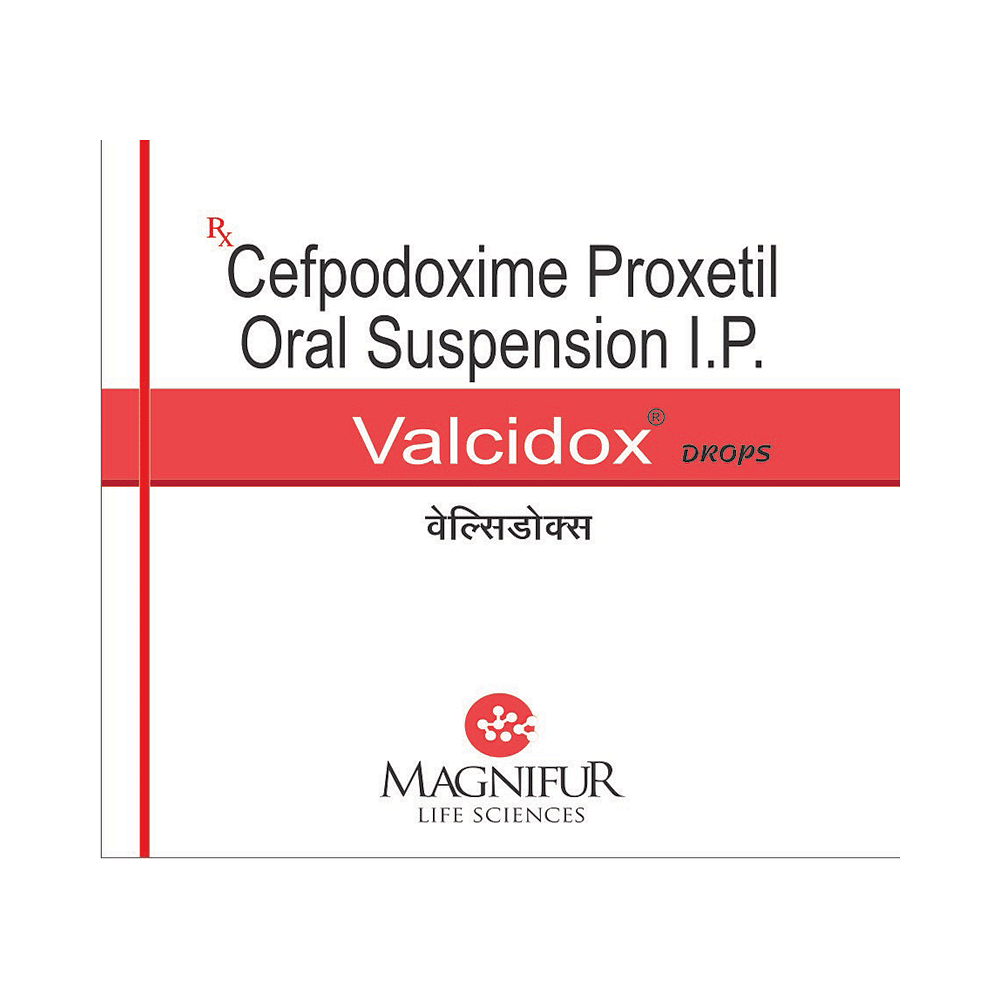
Valcidox Drops

Podoforce Drops

Estidox Drop

Cpdox Oral Suspension

Vanpox Oral Drop

Pelpod Oral Drop
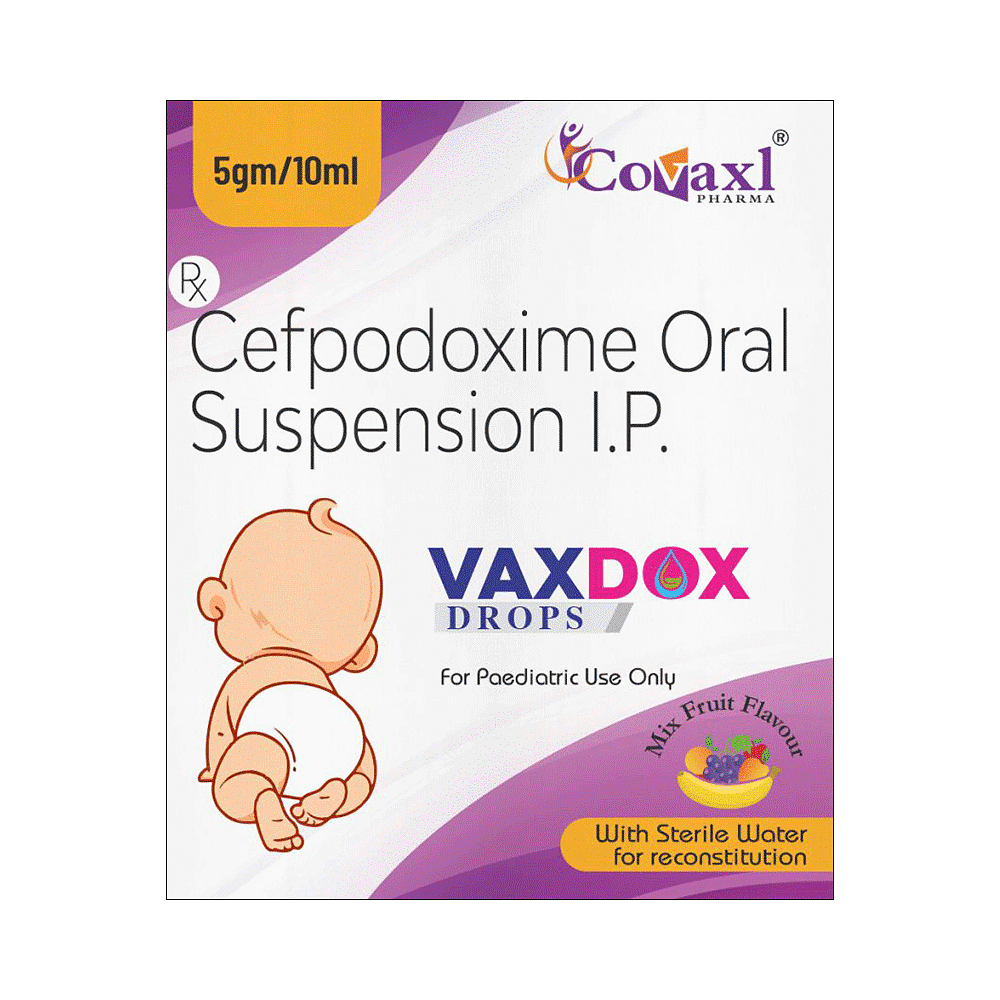
Vaxdox Drop Mix Fruit
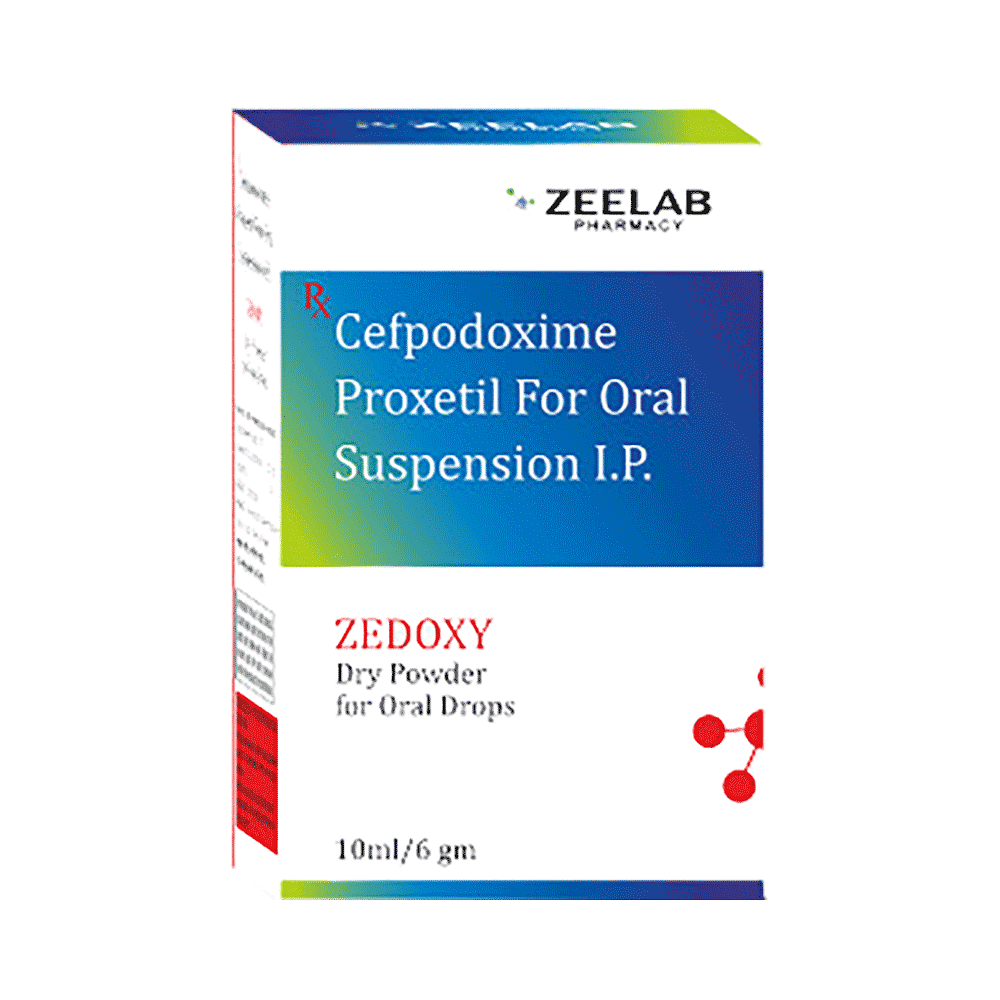
Zedoxy Oral Drop
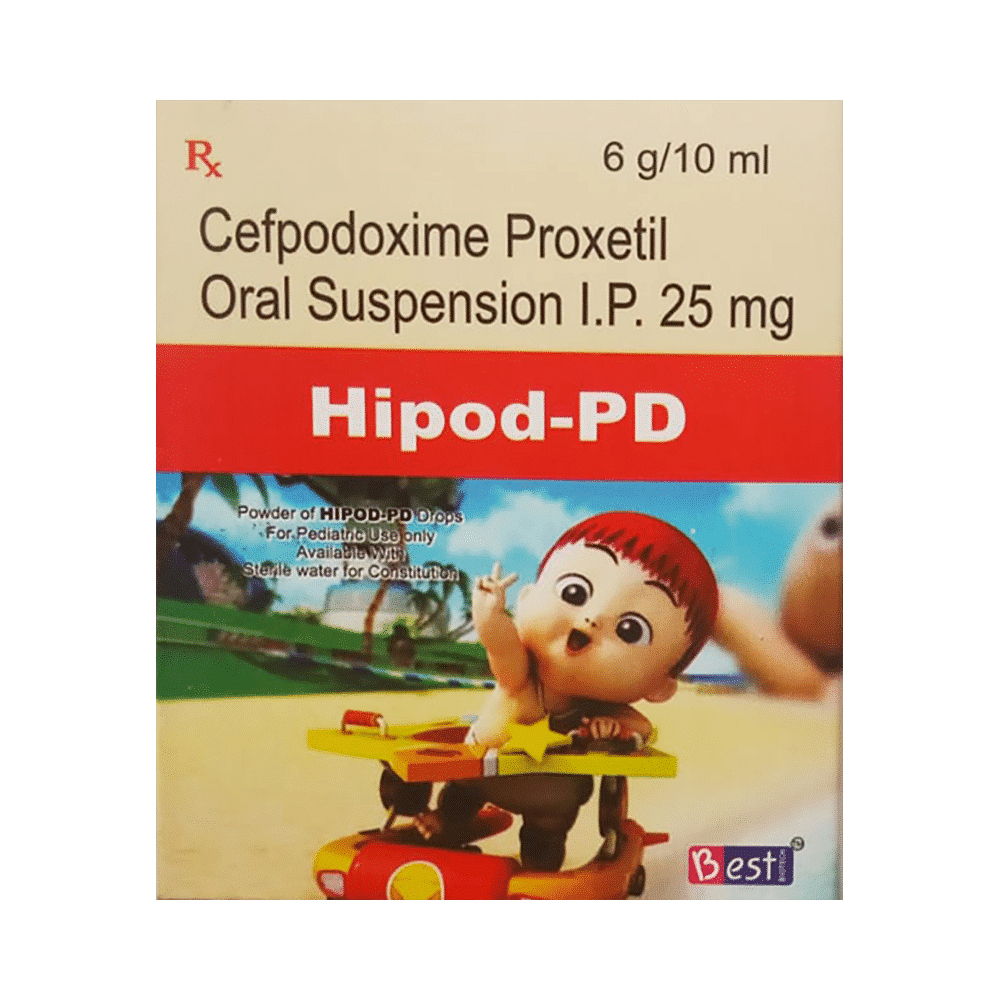
Hipod-PD Drop
Frequently asked questions
What if I give too much of Swich Drops by mistake?
Overdosing on Swich Drops is unlikely to cause harm. However, if you believe your child received an excess dose, immediately contact a medical professional for guidance.
Are there any possible serious side effects of Swich Drops?
Serious adverse effects from this medication include persistent vomiting, kidney damage, allergic reactions (e.g., skin rashes or difficulty breathing), diarrhea, and severe gastrointestinal infections. Always consult a medical professional if experiencing these symptoms.
What other medicines should not be given along with Swich Drops?
To ensure the most effective treatment, avoid giving Swich Drops in conjunction with medications like Aminoglycosides (amikacin, gentamicin, streptomycin), anticoagulants (blood-thinners) like warfarin, PPIs like Pentaprozole, and H2 blockers like Famotidine. Always consult your child's doctor for a complete list of interactions.
Can I vaccinate my child while he is taking Swich Drops?
Inform the doctor if you are planning to administer vaccinations, such as BCG, cholera, and typhoid vaccine, during your child's Swich Drops treatment. This medication may interfere with the vaccine's effectiveness.
Which lab tests may my child undergo while taking Swich Drops on a long-term basis?
A doctor may order periodic kidney function and liver function tests to monitor your child's health during prolonged treatment with Swich Drops.
The mucus coming out of my child’s nose is yellow-green. Is it a sign of a bacterial infection?
Yellow or green nasal discharge does not automatically indicate the need for antibiotics in a typical case of a common cold. While during a common cold, mucus often thickens and changes color, this can be normal for symptom duration.
My child is having a sore throat and ear infection. Can I give antibiotics?
No. Most sore throats and ear infections are caused by viruses, not bacteria, and require no antibiotic treatment. If your child has a sore throat, runny nose, a barky cough, pain, and discharge from the ear, it is likely caused by a virus. Consult your child's doctor for further guidance.
Does a common cold caused by viruses always result in a secondary bacterial infection? When to start an antibiotic to prevent infection?
Viruses do not typically lead to bacterial infections, but certain circumstances might increase the risk of such a condition. Antibiotics should only be used under professional medical guidance for appropriate cases.
Can Swich Drops impact my child’s digestive system?
Children's stomachs are sensitive and can experience upset while taking antibiotics. During treatment, the body's natural balance of good bacteria can be disrupted, potentially increasing vulnerability to infections.
Can Swich Drops lead to bacterial resistance in my child?
Misuse or irregular antibiotic use for non-bacterial infections can contribute to the development of drug resistance. This resistance makes it harder for antibiotics to be effective, potentially leading to reinfection.


